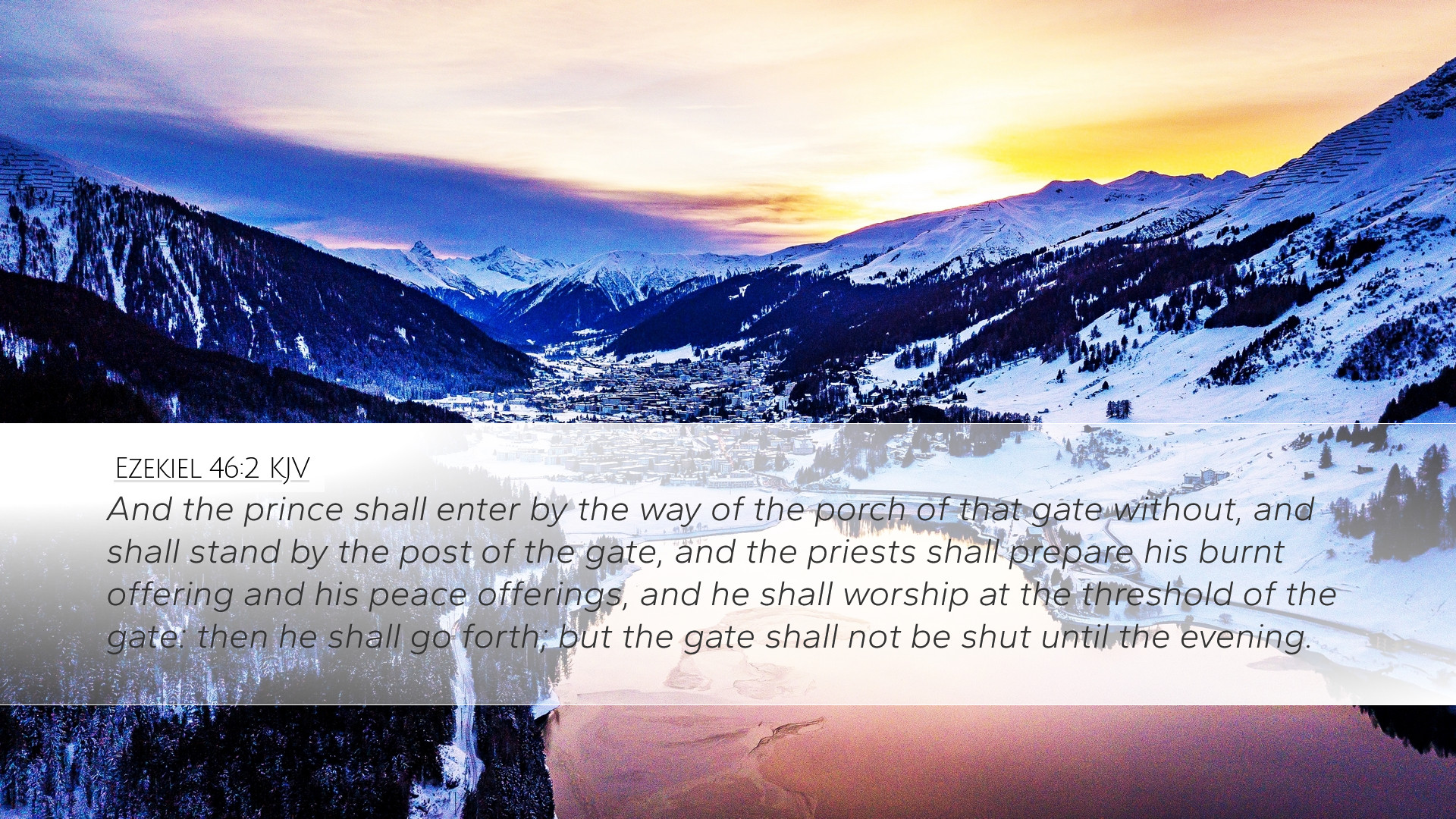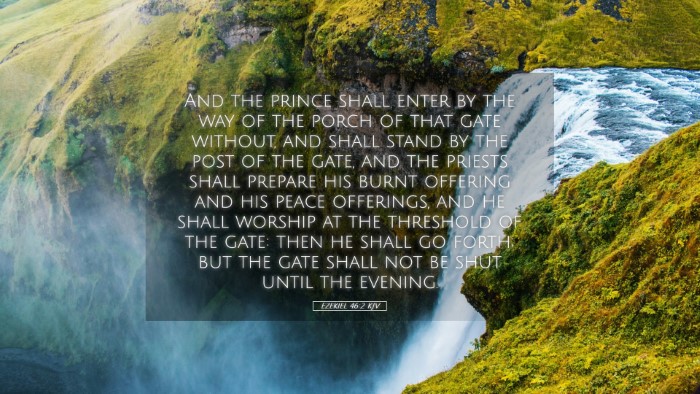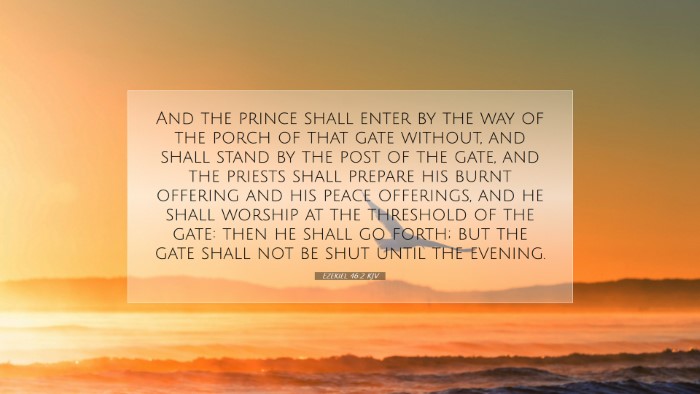Ezekiel 46:2 - Commentary Overview
Bible Verse: "And the prince shall enter by the way of the porch of that gate without, and shall stand by the post of the gate; and the priests shall prepare his burnt offering and his peace offerings, and he shall worship at the threshold of the gate: then he shall go forth; but the gate shall not be shut until the evening."
Contextual Analysis
This verse is situated within Ezekiel’s vision of the restored temple and the regulations regarding worship and sacrifices. Ezekiel, a prophet during the Babylonian exile, received detailed instructions on the temple's design, the roles of various participants in worship, and the renewal of the covenant community.
Commentary Insights
1. The Role of the Prince
Matthew Henry: Henry notes that the "prince" here refers to a leader in Israel, likely a messianic figure or a representation of Christ. The manner in which he enters and worships symbolizes the need for leaders to engage humbly in worship and to be models of devotion for the people.
2. The Significance of the Porch
Albert Barnes: Barnes emphasizes the significance of the specific location— the porch of the gate. The porch serves as a transitional space between the sacred and the secular, indicating the importance of being in a designated place of worship while respecting boundaries set by God’s commandments.
3. Worship and Sacrifice
Adam Clarke: Clarke elucidates that the offerings prepared by the priests signify the centrality of sacrifice in worship. The burnt offerings represent total dedication to God, while the peace offerings reflect the communion between God and the worshippers, emphasizing the communal aspect of worship in the community of faith.
4. The Threshold as a Place of Encounter
Interpretative Insights: The act of worshipping at the threshold symbolizes a significant moment of encounter with God. This place is not just a physical boundary but a spiritual one that invites the faithful to honor God's holiness while also experiencing His nearness.
Theological Reflections
1. Authority and Humility
In this verse, authority (the prince) is shown in a posture of humility as he leads worship. This challenges contemporary leaders to recognize that true leadership in a spiritual context is marked by servitude and devotion rather than domination.
2. The Intermediary Role of Priests
The priests' role in preparing offerings points to the necessary mediatorial function they serve between God and the people. This foreshadows the ultimate mediator, Jesus Christ, who fulfills the sacrificial system and becomes the basis for direct access to God.
3. Time and Worship
The closing phrase, "the gate shall not be shut until the evening," carries implications about the nature of worship and access to God. The openness of the gate symbolizes God's invitation to relationship and worship that continues throughout the day until completion, reflecting the ongoing nature of divine fellowship.
Practical Applications
- Encouragement for Spiritual Leaders: This verse encourages leaders within the church to model humility and worship before their congregations.
- Clarification of Worship Spaces: Recognizing specific areas designated for worship can help congregations understand the significance of sacred spaces.
- Continued Access to God: It serves as a reminder that, through Christ, believers have continuous access to God, inviting constant communion rather than restricted interactions.
Conclusion
Ezekiel 46:2 offers profound insights into the heart of worship, the nature of leadership, and God's enduring invitation for relationship. The imagery presented through the prince, the offerings, and the open gate culminate in a rich theological tapestry that speaks to the nature of God and the requirements of His people.


